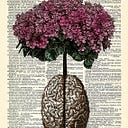Member-only story
Islam, racism, and recognition
The dynamic between people, says Hegel, which also explains the birth and bifurcation of consciousness, is a fundamentally antagonistic one, featuring a master and bondsman — although with current events in mind, it may be more appropriate to call it by its more familiar name: the master-slave dialectic.
If Hegel is right, and the master-slave dialectic is our baseline attitude towards each other, then we can find some hope in the fact that the Muslim is the one who transcends it, who overcomes our worst instincts for sheer domination by setting his sights higher and subjugating themself to God. By declaring themself in eternal servitude as a abdullah, a slave of God, the Muslim disavows their desire to be a master of anyone, and in this important sense, the Muslim is post-racial.
Islam is a post-racial ideology
The Quran is filled with refrains that make the Muslim acutely aware of their eternal subjugation to God, a theme which ultimately determines the meaning of their name, one who has submitted. God is the owner, sustainer, and creator of the universe, and is even considered, in a religious doctrine that would later inspire centuries of philosophical speculation, to incorporate our own free will into His own.
These constant reminders encourage the Muslim to build up, in their own inner…
